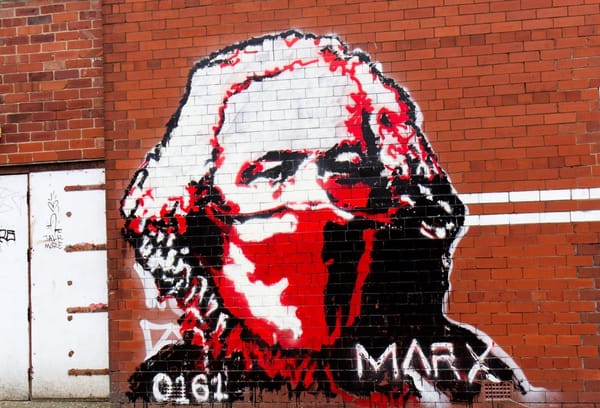A specter is haunting America—the specter of, yes, communism. Nearly four decades after the collapse of the Soviet Union and China’s embrace of markets, conservative influencers have revived the rhetoric of their old Cold War crusade. Donald Trump has joined them, dubbing his opponent “Comrade Kamala” and, during their recent debate, declaring her “a Marxist.” Her running mate Tim Walz, meanwhile, has been portrayed as a new Manchurian candidate due to his educational trips to the People’s Republic.
The temptation to tie one’s political enemies to a foreign adversary is, of course, perennially irresistible, as Barack Hussein Obama and “Moscow Don” himself each learned in turn. The current repurposing of Red Scare rhetoric is also perhaps a response to the electoral impotence of anti-woke rhetoric, made evident in the demise of the Ron DeSantis campaign. The assumption seems to be that linking progressives to the historic Evil Empire will make clearer to voters the threat they pose than further criticism of Disney’s latest LGBTQ cartoon character.
Mainstream Democrats treat the “communist” attack as absurd and cynical: How could a candidate endorsed by a long list of Fortune 500 CEOs pose a threat to capitalism? A small number of self-identified Marxists who reject the lesser-evil case for the Democrats make a similar point. In reality, while the equation of today’s corporate-friendly, socially liberal progressivism with revolutionary communism is ridiculous, there is indeed a certain overlap between liberalism and Marxism that bears some scrutiny, albeit not in the terms Trump and Republicans propose.
